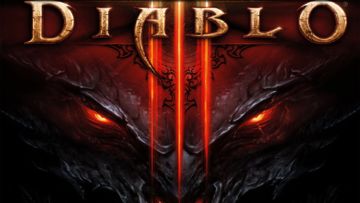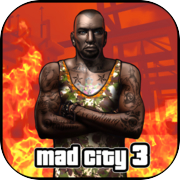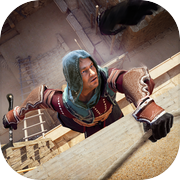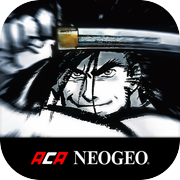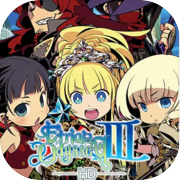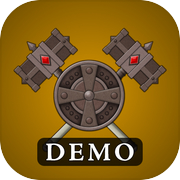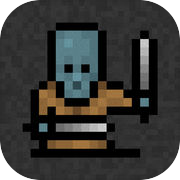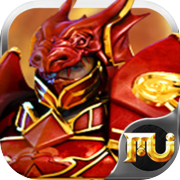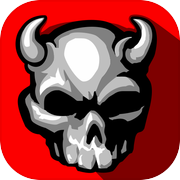Diablo III (360, NS, PC, PS3, PS4, XB1)
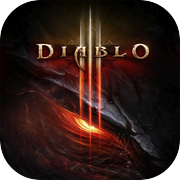
Diablo III is the third instalment in Blizzard's franchise. The plot is set twenty years after the events of Diablo II, when a star falls on the cathedral in Old Tristram (the same cathedral that the hero had to explore down to the depths of Hell in the original Diablo). The hero, one of five classes (Barbarian, Monk, Demon Hunter, Witch-doctor and Wizard), male or female, sets off to investigate the mysterious falling star.
The game, like its predecessors, is a dungeon crawler in which the player fights against hordes of enemies ranging from beasts and undead to actual demons. The environment is made of various maps. The towns and cities have predefined maps, and the fields and dungeons have randoms maps. These maps are reset any time the player reloads the game. The game has four acts, two game modes (normal and hardcore) as well as four difficulty levels: Normal, Nightmare, hell and Inferno. In hardcore mode, defeat is not allowed. The patches also added «monster power» setting, which allows to scale selected difficulty additionally from 1 to 10.
Each character have multiple sets of abilities to choose from: a standard (left click) attack, a special (right click) attack, four special abilities (key 1 to 4) and three passive abilities. For each class, each slot has a specific set of abilities that get unlocked by levelling-up. Some of these skills have a set of runes that adds a special effect to that same skill. Setting specific skills and runes is what will make your character unique.
Another important part of customization is the equipment. The equipment slots are: Head, shoulder, arm, chest, belt, legs, feet, main hand and off hand, as well as an amulet slot and two ring slots. The variety of random magic attributes of the equipment means switching armor pieces and weapons regularly. Further customization include dyes to color the armor pieces, and gems that can be put in socketed equipment to add more magic attributes. New equipment can be dropped by foes, bought in stores and auction houses or crafted in the forge. There is also a jewelry where one can make his own gems and amulets.
In solo mode, three different followers (Templar, Scoundrel and Enchantress) are eventually available to accompany the hero of his/her quest. They also have unique skills to choose and have six equipment slots (Rings and amulet, off hand and main hand, as well as a slot for a special tool, unique for each follower). A friend can also join a solo game at any time. The follower will become unavailable as the game switches to co-op mode. There is no friendly fire in multiplayer. There are also public games that the player can join instead of playing solo or co-op. A simple PVP mode is available too, called «duels», being free for all death match for up to 4 players.
A new addition to Diablo III is the auction house, where items are exchanged for in-game gold or real money, also usable to purchase Blizzard merchandise. The game features a wide array of achievements earned upon meeting certain requirements. Due to the random fields, dungeons and available sub-quests, it takes many play-through to get achievements, complete quests and find all of the game's sub-plot and character's back-story.
The game, like its predecessors, is a dungeon crawler in which the player fights against hordes of enemies ranging from beasts and undead to actual demons. The environment is made of various maps. The towns and cities have predefined maps, and the fields and dungeons have randoms maps. These maps are reset any time the player reloads the game. The game has four acts, two game modes (normal and hardcore) as well as four difficulty levels: Normal, Nightmare, hell and Inferno. In hardcore mode, defeat is not allowed. The patches also added «monster power» setting, which allows to scale selected difficulty additionally from 1 to 10.
Each character have multiple sets of abilities to choose from: a standard (left click) attack, a special (right click) attack, four special abilities (key 1 to 4) and three passive abilities. For each class, each slot has a specific set of abilities that get unlocked by levelling-up. Some of these skills have a set of runes that adds a special effect to that same skill. Setting specific skills and runes is what will make your character unique.
Another important part of customization is the equipment. The equipment slots are: Head, shoulder, arm, chest, belt, legs, feet, main hand and off hand, as well as an amulet slot and two ring slots. The variety of random magic attributes of the equipment means switching armor pieces and weapons regularly. Further customization include dyes to color the armor pieces, and gems that can be put in socketed equipment to add more magic attributes. New equipment can be dropped by foes, bought in stores and auction houses or crafted in the forge. There is also a jewelry where one can make his own gems and amulets.
In solo mode, three different followers (Templar, Scoundrel and Enchantress) are eventually available to accompany the hero of his/her quest. They also have unique skills to choose and have six equipment slots (Rings and amulet, off hand and main hand, as well as a slot for a special tool, unique for each follower). A friend can also join a solo game at any time. The follower will become unavailable as the game switches to co-op mode. There is no friendly fire in multiplayer. There are also public games that the player can join instead of playing solo or co-op. A simple PVP mode is available too, called «duels», being free for all death match for up to 4 players.
A new addition to Diablo III is the auction house, where items are exchanged for in-game gold or real money, also usable to purchase Blizzard merchandise. The game features a wide array of achievements earned upon meeting certain requirements. Due to the random fields, dungeons and available sub-quests, it takes many play-through to get achievements, complete quests and find all of the game's sub-plot and character's back-story.
Available on devices:
- Windows

